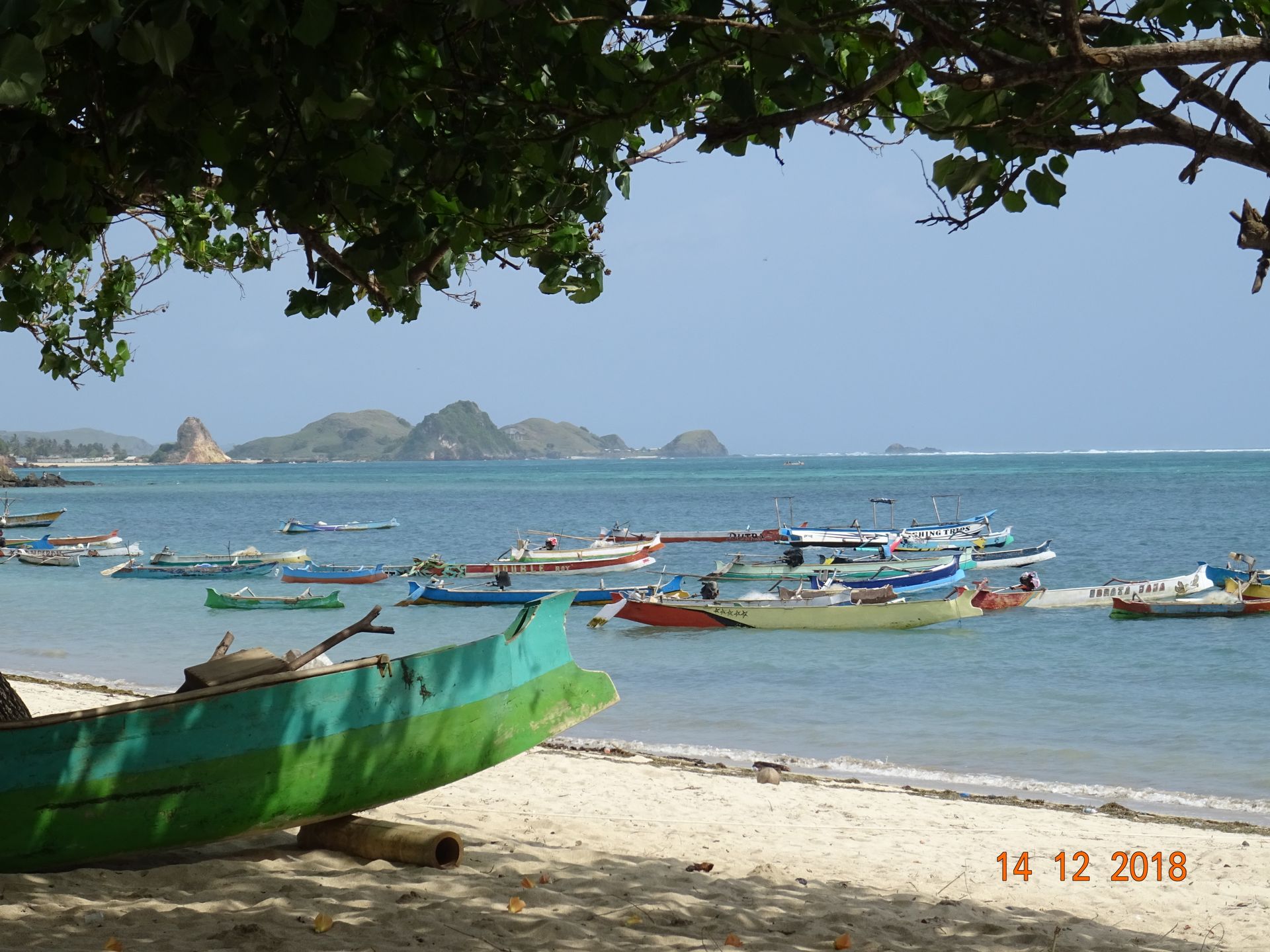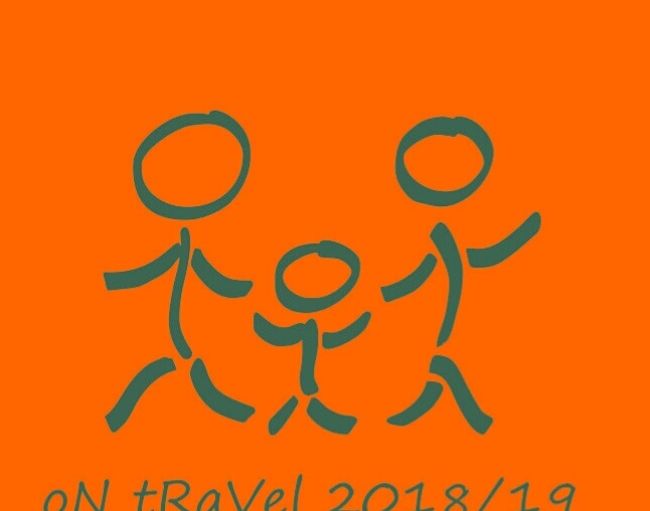Jungle Trek, Jungle Trek 🎶
ที่ตีพิมพ์: 12.02.2019
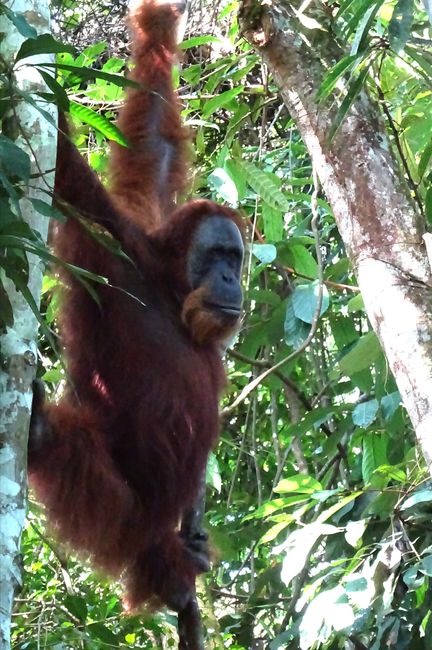
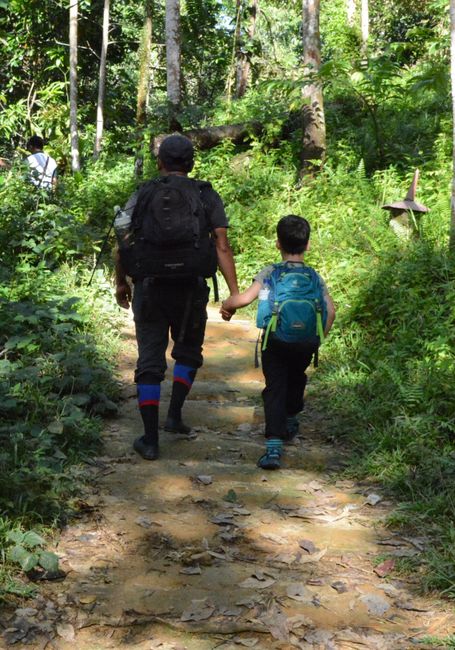
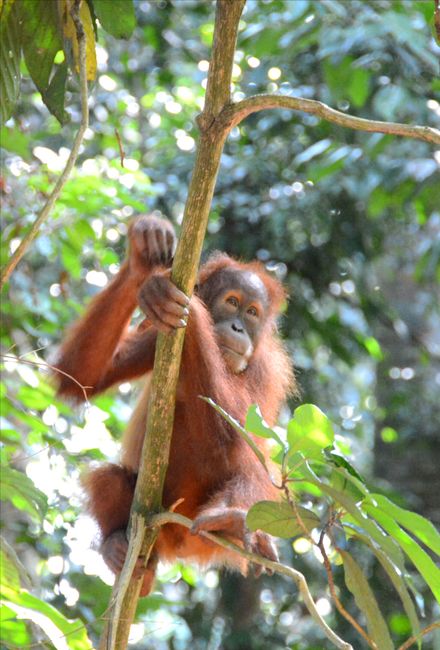
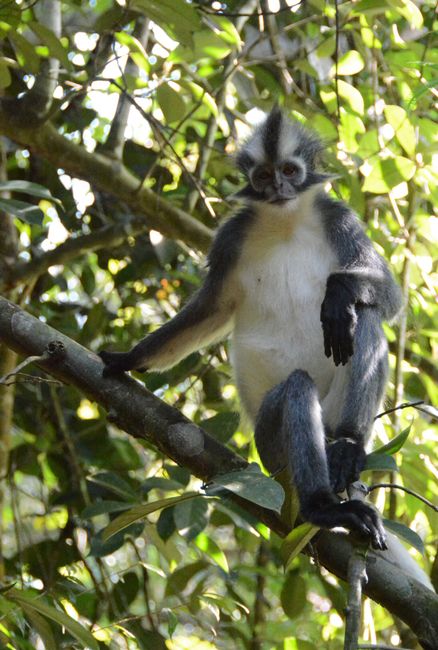
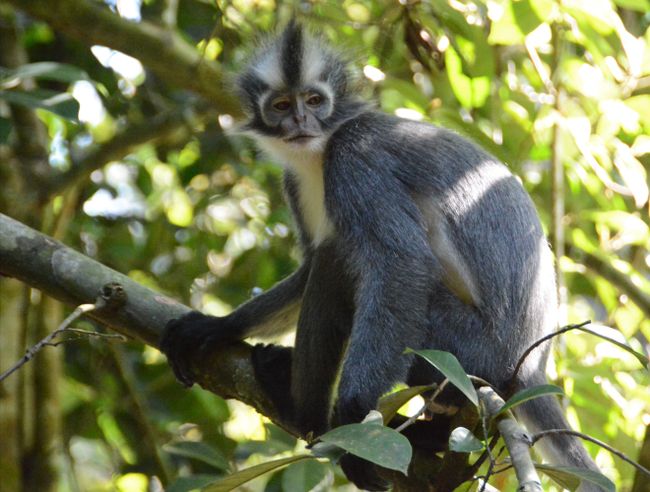
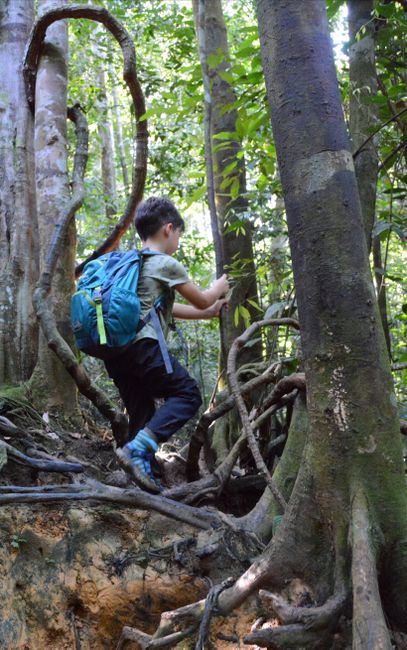
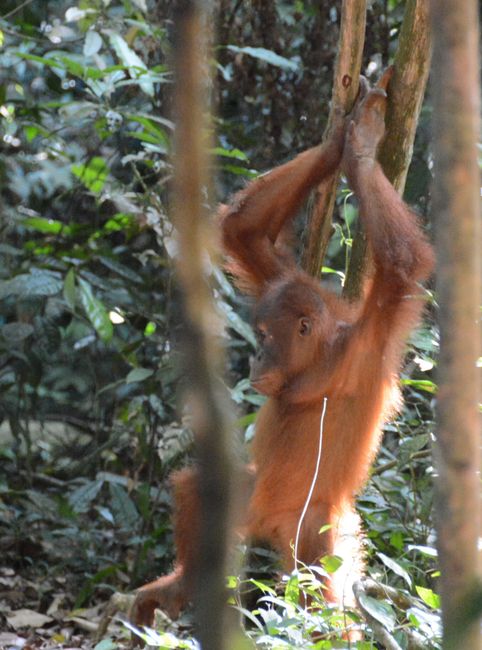
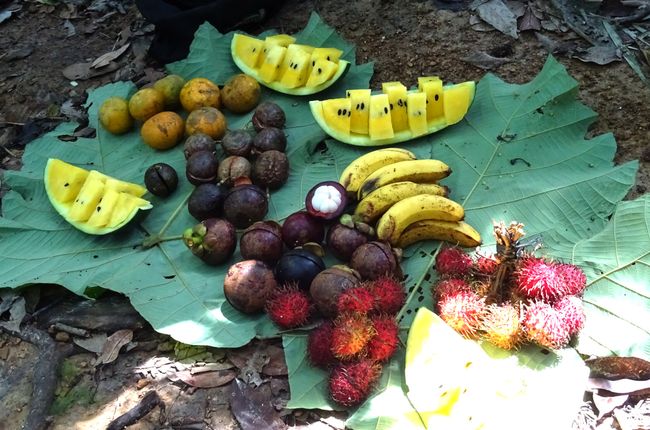
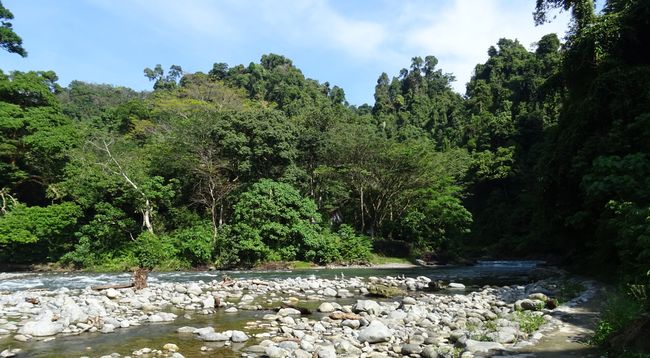
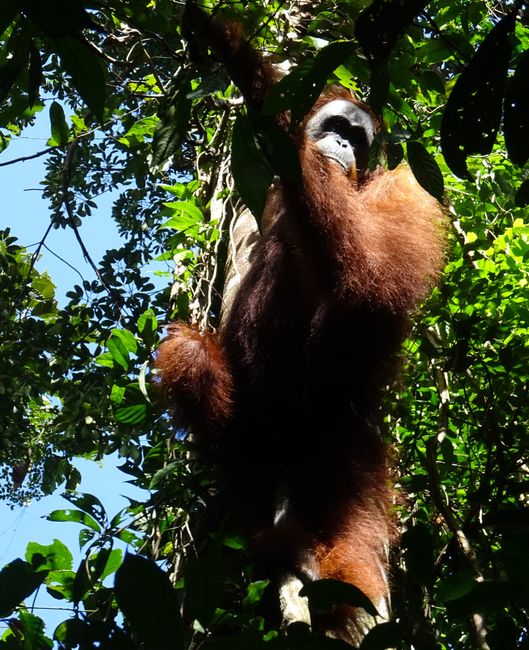
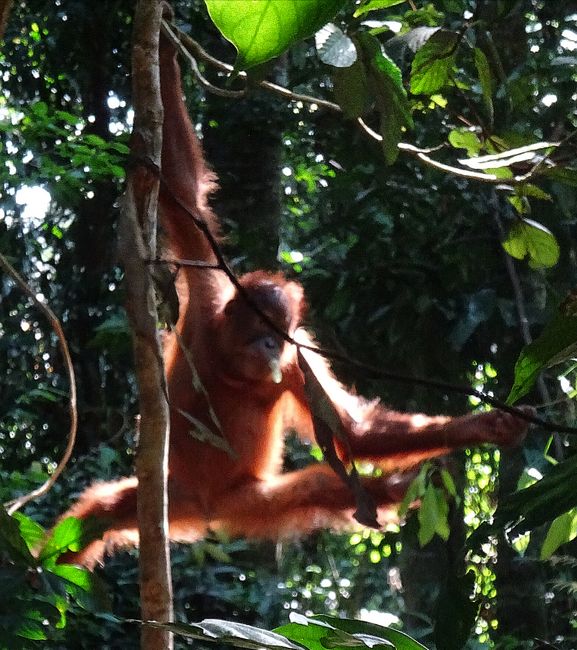
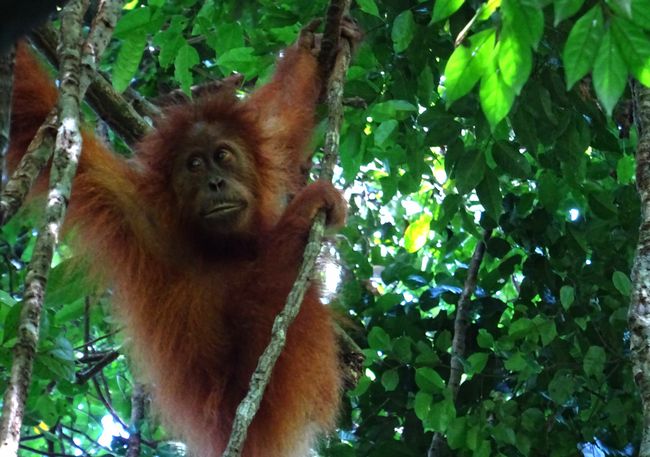
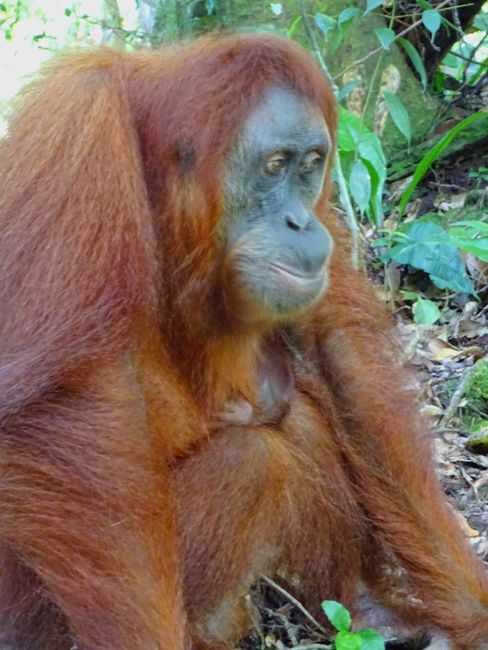
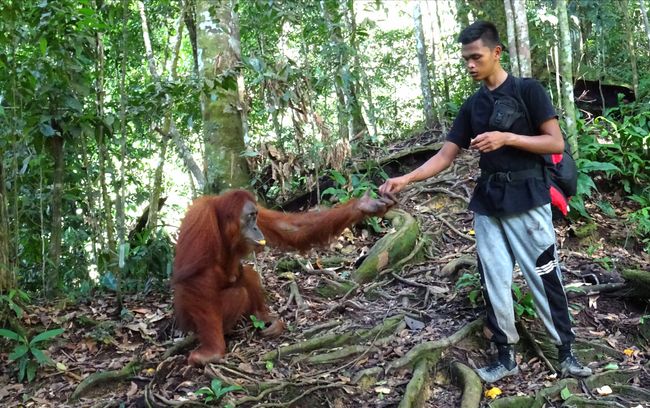
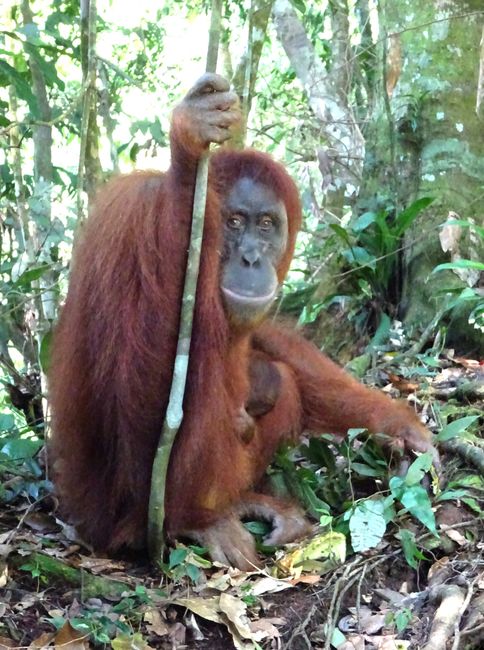
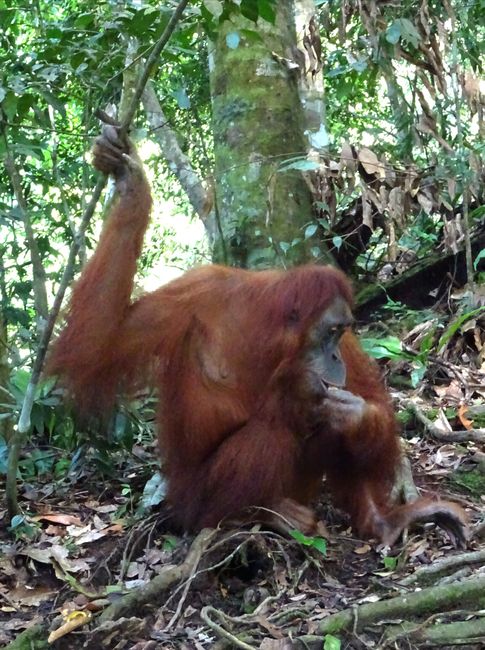
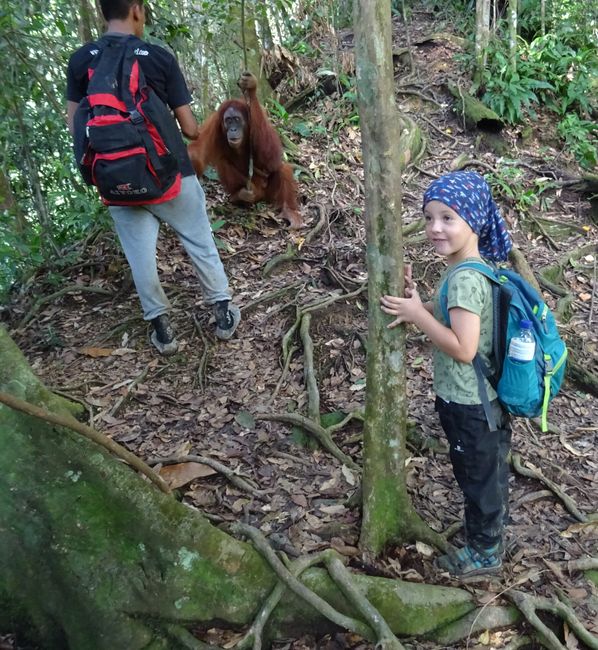
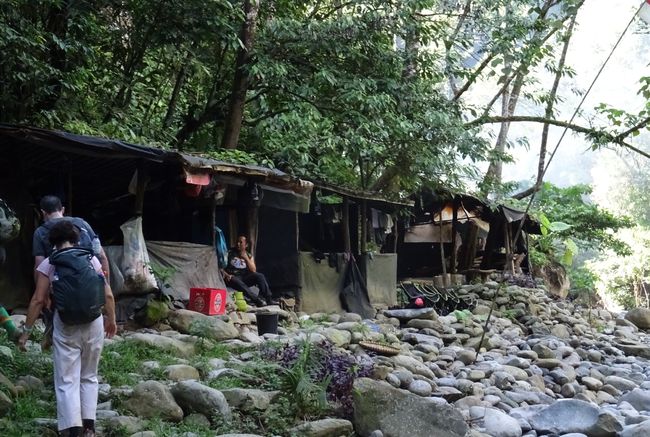
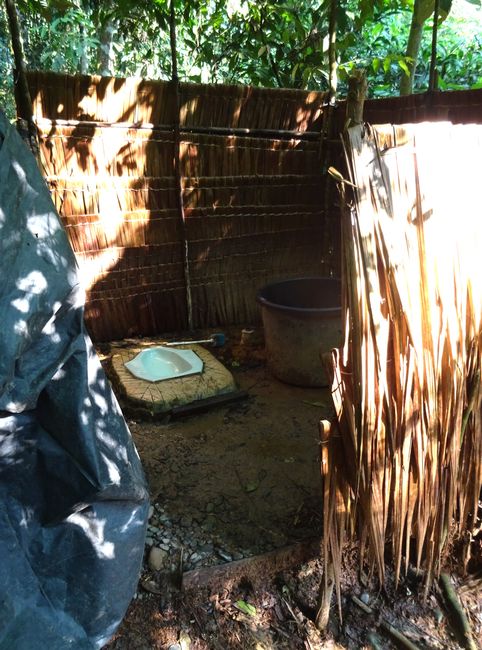
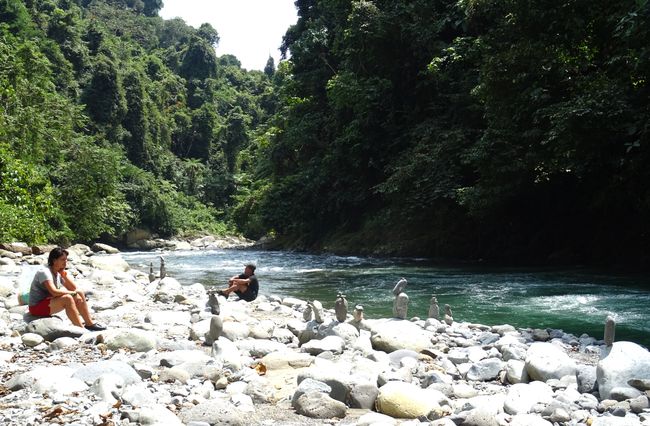
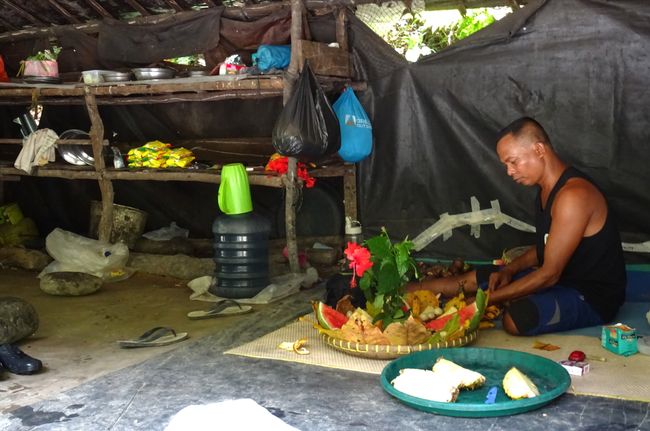
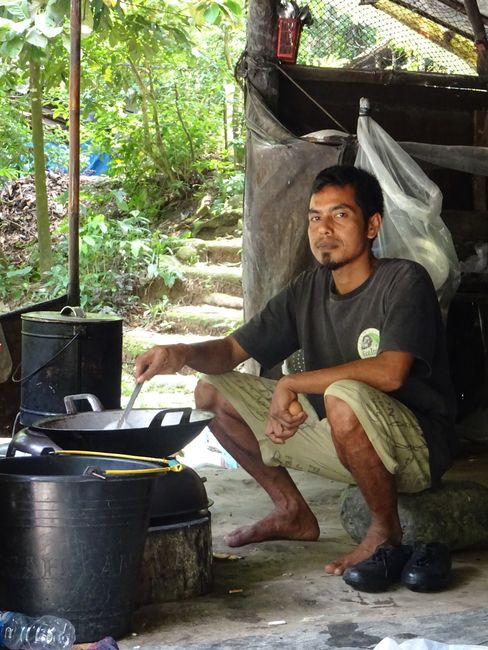
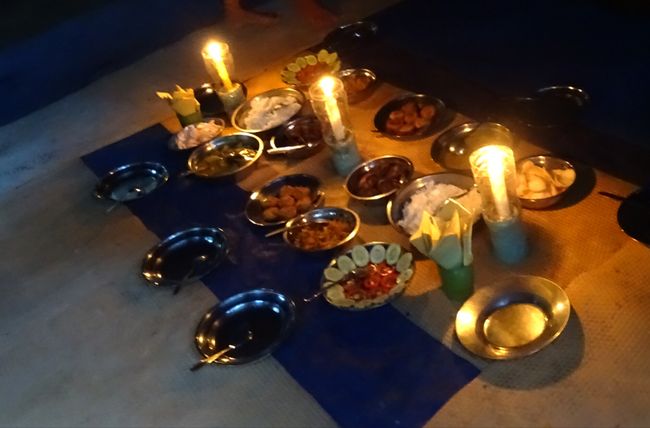
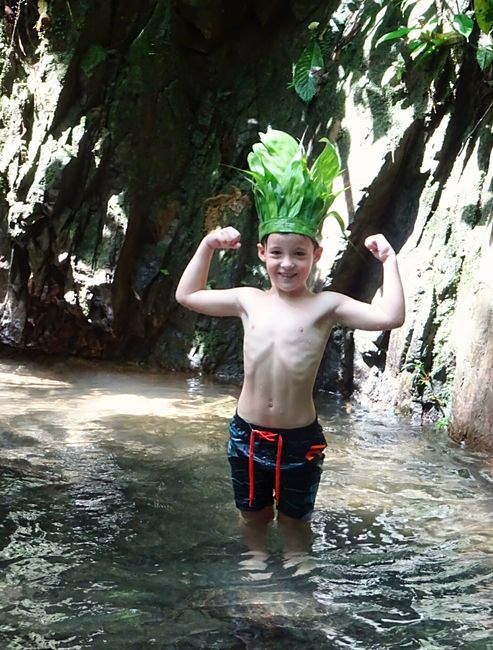
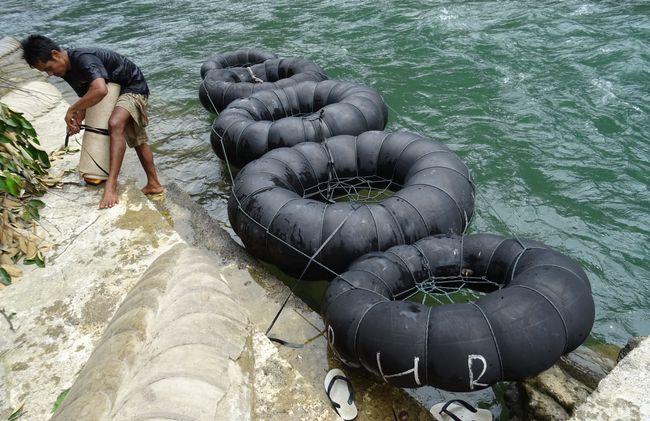
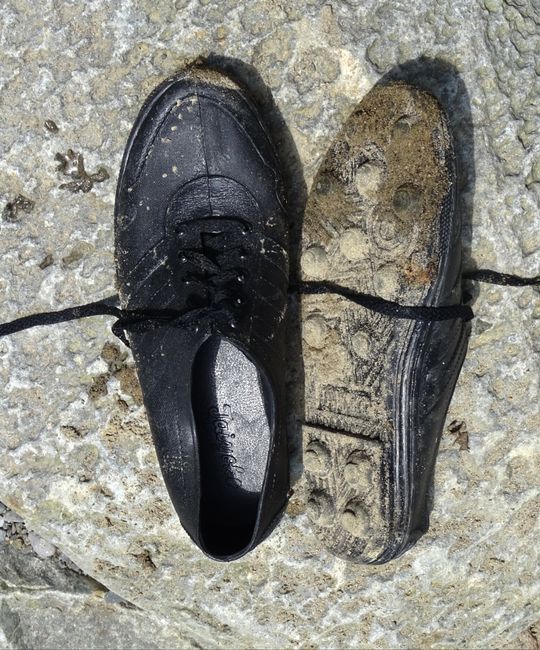
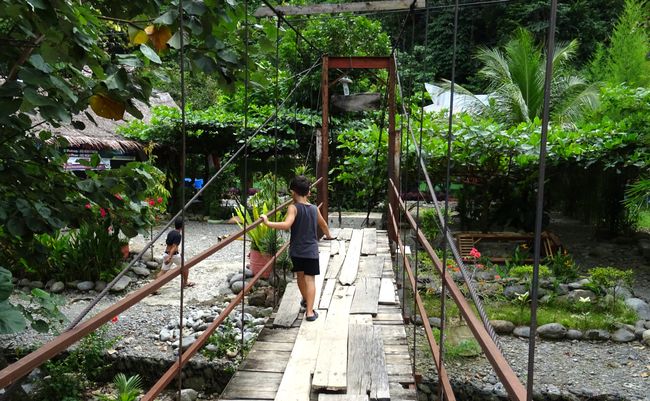
สมัครรับจดหมายข่าว
Bukit Lawang
07.02.19
The jungle adventure awaits. In the evening, we reach Bukit Lawang and at that very moment, it starts pouring down. After a 15-minute walk, we reach our bungalow completely drenched.
In Bukit Lawang, we planned a day trek through the Gunung Leuser National Park*, hoping to see orangutans 🦍 in the wild. The day trek turned into 2 days and an overnight stay in a camp by the Bohorok River.
We were a small group of 6 people and 3 guides (1 guide additional for Paul). With light baggage, we started the first day in the morning quite relaxed. Passing rubber plantations, we entered the jungle where we soon spotted the first orangutan.
Gradually, the forest became denser and the path more challenging...up and down, up and down... Since it had rained in the days before, it was quite slippery at times. Sometimes we wondered why we put ourselves through this effort. Even "Jungleboy" Paul persevered (almost) without complaining... that even impressed our guides.
During the tour, the guides told us a lot about the national park, the plants growing here, and the jungle inhabitants.
At the end of our strength 😥, but happy, we arrived at the camp in the late afternoon and refreshed ourselves in the river.
In the evening, there was an extremely rich "buffet"... much more than we expected. 🍉🍌🍍🍚🍜🍠🥒🍆.
While the others spent the morning chilling by the river, Kris went on another 2-hour tour into the jungle the next morning... Once up and once down again.
After a detour to a small waterfall, we finally went down the rapids at more or less rapid pace with tubes.... A huge fun for everyone, especially Paul couldn't stop laughing🤣🤣🤣
We saw several orangutans, small and big, and got quite close to them.
In addition to the orangutans, we saw gibbons, Thomas Leaf Monkeys, macaques, a small monitor lizard, a hornbill bird, and large termite mounds that serve as food for orangutans.
*Gunung Leuser National Park is located in the north of the island of Sumatra and is one of the largest and last nature reserves in Indonesia. Due to the worldwide demand for palm oil, 80% of the rainforest was cleared here to create palm oil plantations. The radical deforestation has destroyed the habitat, especially for the orangutans. The main goal of the people and organizations here is to preserve the remaining rainforest.
In November 2003, the village was heavily damaged by a flood. Approximately 300 people died. The deforestation of the rainforest is likely also responsible for the devastating damages. (Source: Wikipedia and various websites).
สมัครรับจดหมายข่าว
คำตอบ (1)
Heike
So tolle Aufnahmen..... Tiere .... Natur pur ..... freu mich für euch drei ... sowas erleben zu dürfen ♥️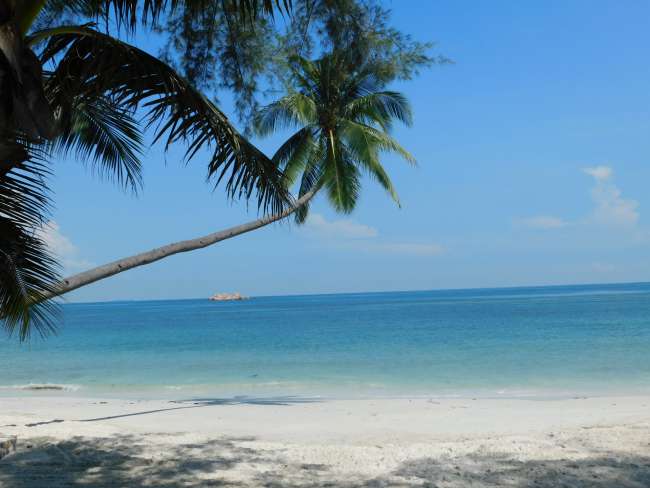
รายงานการเดินทาง อินโดนีเซีย
